General
Vice Chancellor Updates Media on DVC AA Appointment, Acquisitions, Research & Various Issues
Published
4 months agoon
By
Mak Editor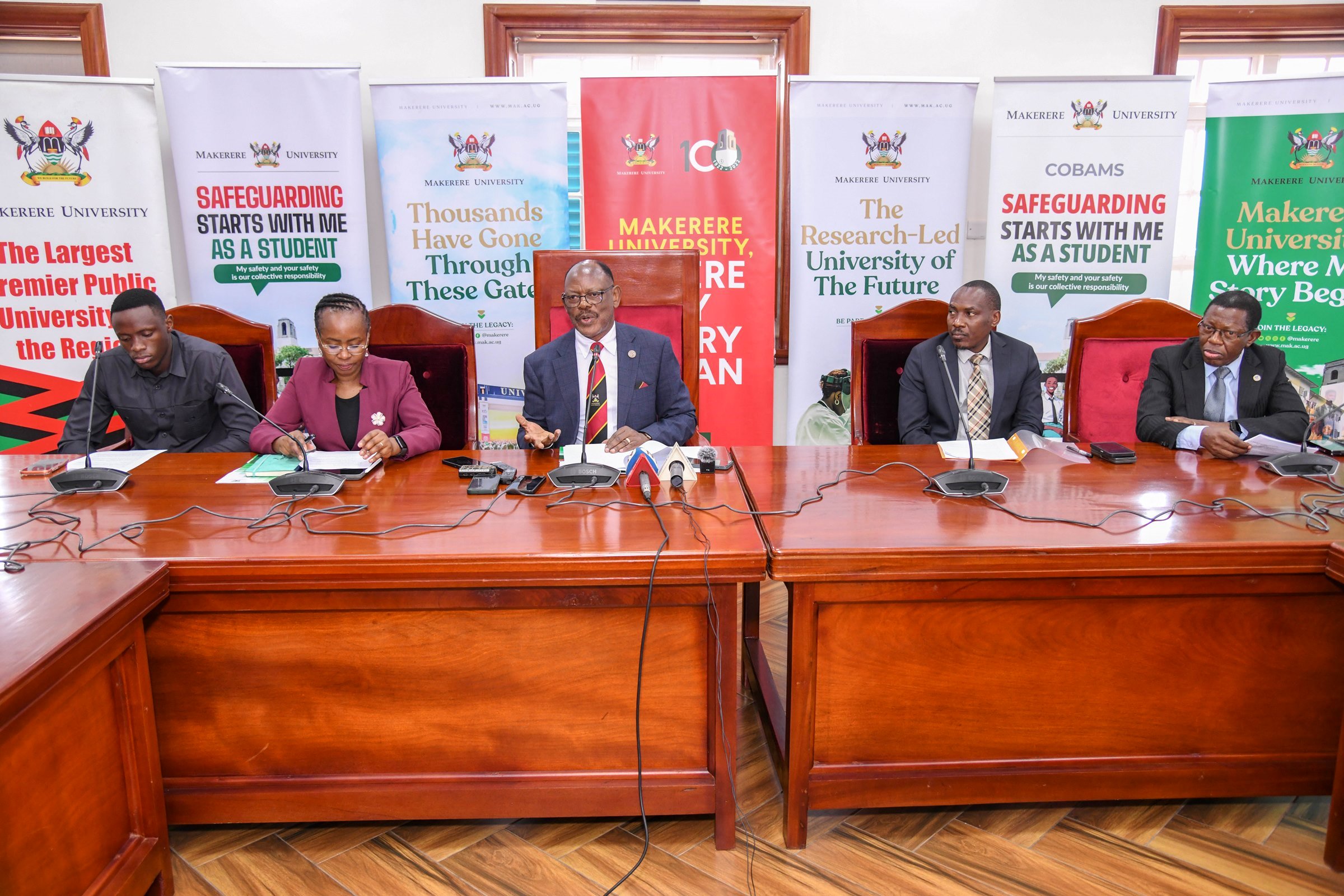
The Vice Chancellor, Prof. Barnabas Nawangwe on Tuesday 7th October, 2025 held a press conference to update members of the Media on the; New Deputy Vice Chancellor (Academic Affairs), Acquisition of Land in Kyankwanzi, Acquisition of 3 buses from Kiira Motors, Anti-Tick vaccine, Makerere Innovation Hub upgrade, Promotion of Student Freedoms and Responsible Leadership, Student Allowances, and Staff Hires and Exits.
The event held in the Council Room, Main Building, was attended by the DVC AA-Prof. Sarah Ssali, Ag. DVC F&A-Prof. Winston Tumps Ireeta, Academic Registrar-Prof. Buyinza Mukadasi, Dean of Students-Dr. Winifred Kabumbuli, Chief Human Resources Officer-Mr. Deus Tayari Mujuni, Deputy Chief – Public Relations-Ms. Eunice Rukundo, 91st Guild President-H.E. Ssentamu Churchill James and staff from the Offices of the Vice and Deputy Vice Chancellors.
The proceedings of the Press Conference follow below;
Vice Chancellors’ Press Statement
I welcome the media to this briefing. I would like to start by thanking our staff for their diligent and dedicated service to our University and Country.
In our teaching and learning, Makerere University seeks to respond to real-world problems within clearly defined industries and economic sectors. We align core university interventions with social economic transformation, by leveraging partnerships, technology, creative arts, sciences, research and innovations. We are committed to creating an enabling environment for both students and staff in order to produce graduates who are globally competitive, relevant and responsive to development needs.
To this end, we have made some strides that I would like to share, starting with the introduction of the new Deputy Vice Chancellor – Academic Affairs.
1. Introduction of the New Deputy Vice Chancellor (Academic Affairs)
Makerere University Chancellor Dr. Crispus Kiyonga on September 23rd 2025, appointed Professor Sarah Evelyn Nabwire Ssali as the Deputy Vice Chancellor in charge of Academic Affairs. Prof. Ssali has had a distinguished career at Makerere University spanning over two decades. Until her appointment, she was the Acting Director of the Institute of Gender and Development Studies (IGDS), having previously served as Dean of the School of Women and Gender Studies (2017–2024). She is also the Director of the Centre of Excellence in African Identities under the African Research Universities Alliance (ARUA). An accomplished scholar, Prof. Ssali is a Professor of Gender and Development Studies and a prolific researcher. Beyond academia, she has contributed significantly to university governance, and also played a leading role in curriculum reviews and policy reforms.
I warmly congratulate Prof. Sarah Ssali on her appointment and look forward to her leadership in steering academic affairs to greater heights.
2. Acquisition of Land in Kyankwanzi Land
The University is delighted to report that, on September 26th, 2025, Makerere University officially received one square mile (approximately 640 acres) of land from the Government of Uganda. This land, located in Kyankwanzi District, has been earmarked for the establishment of a Makerere University Agro-Demonstration and Training Facility.
This facility will serve as a living laboratory for practical agricultural training, research, and community engagement. It will host demonstration farms, improved livestock breeds, and innovative technologies designed to transform subsistence agriculture into a productive, market-oriented enterprise. Through this initiative, Makerere will train farmers and extension workers in modern farming practices, sustainable land use, pest and disease control, climate-smart agriculture, and agribusiness management.
The Kyankwanzi project aligns with Makerere University’s broader mission to generate and disseminate knowledge that directly impacts communities and supports Uganda’s socio-economic transformation.
3. Makerere Acquires 3 buses from Kiira Motors
I am pleased to announce that on September 27th, 2025, we strengthened our partnership with Kiira Motors Corporation through the acquisition of three modern buses. Of these, two are diesel-powered while the third is an electric bus, specifically brought to ease mobility of students and staff with special needs across campus.
This initiative speaks directly to our core values of inclusivity, equity, and care for all members of the university community. By ensuring that every student and staff can fully participate in academic life, Makerere continues to create a learning environment where everyone can thrive.
Our partnership with Kiira Motors Corporation reflects Makerere’s support for Uganda’s homegrown innovation ecosystem. That Kiira Motors was founded on research from within our own College of Engineering, Design, Art and Technology (CEDAT), is a demonstration of how university knowledge can be translated into practical solutions that serve society.
We extend our appreciation to the management and team at Kiira Motors for their generous contribution and continued collaboration. Together, we are not only advancing sustainable transport and green technology, but also reaffirming our shared vision of a modern, inclusive, and innovation-driven Uganda.
4. RESEARCH AND INNOVATION UPDATES
i. Anti- Tick vaccine
The College of Veterinary Medicine, Animal Resources and Biosecurity (COVAB) has successfully completed the formulation of an anti-tick vaccine, marking a major milestone in Makerere University’s contribution to Uganda’s livestock sector. The vaccine, which has demonstrated an efficacy rate of 86%, is expected to reduce calf mortality by 14% and significantly improve productivity across the livestock value chain. Uganda’s livestock industry currently contributes 19.4% to the national GDP, valued at approximately USD 17.09 billion.
Once fully developed and approved, the anti-tick vaccine is projected to reduce product losses in milk and meat by 11% and 29% respectively, and cut down on acaricide importation (An acaricide is a chemical substance used to kill ticks and mites). The vaccine is now awaiting clinical trials and regulatory approval from the relevant drug authorities before commercialization.
ii. Makerere University’s Innovation Hub upgraded
In 2022, we established an Innovation Hub dubbed the Unipod, which in 2024 got a grant from UNDP under the Timbukutoo Africa Initiative. The Unipod has now been formally upgraded to Makerere University Technology and Innovations Center (MUTIC) with the mandate to offer support to innovations university-wide.
MUTIC is a state-of-the-art innovation center that nurtures, incubates and accelerates ideas into companies. It has 10 makerspaces including Computer-Aided Design rooms, Textile space, Electrical space, Renewable Energy, E-Mobility, a Multimedia Studio among others.
The Center will be under the administration of a board of Directors chaired by the Deputy Vice Chancellor in charge of Finance and Administration and comprising members from the student body, academic staff, government and the private sector.
5. STUDENT AFFAIRS
Promoting Student Freedoms and Responsible Leadership
Makerere University continues to make deliberate and progressive efforts to enhance student freedoms and participation in leadership.
In a development that reflects Makerere’s continued commitment to empower and nurture responsible future leaders, the University recently made the decision to reinstate open guild campaigns, which had previously been suspended following the tragic loss of a student during campaign activities. This decision was reached after extensive consultations with the Student Guild leadership, guided by our shared desire to restore a vibrant, participatory, and safe democratic culture on campus.
The resumption of open campaigns comes with a renewed understanding and agreement to balance freedom with responsibility, emphasizing peaceful and respectful campaigns that do not disrupt academic programmes or endanger persons, property, or businesses within and around the University.
As an institution that values dialogue, democracy, and responsible citizenship, we recognize that a truly great university must not only nurture academic excellence but also provide a space for free expression and engagement in governance.
Student Allowances
Students received some of their allowances in Quarter One and will receive the balance this quarter as soon as government releases the Quarter 2 funds. Management has met and harmonized with the Students leadership and we have committed to pay.
6. STAFF AFFAIRS
Staff Hires and Exits
There has been some media attention owing to the recent appointments and departures of staff from Makerere University. Allow me comment on this.
At its 769th meeting, the Makerere University Appointments Board appointed twenty-three (23) new members of staff, confirmed fifty-eight (58) members into University service, and also accepted resignations for eighteen (18) members of staff. Most of the colleagues who resigned went to take up other opportunities in various capacities. We congratulate all departing staff and wish them well in their new positions of service.
We recognize that transition is a natural process in all institutions of higher learning. The career growth and accomplishments of former Makerere staff reflects not only their individual achievements but also Makerere’s enduring role as a crucible for leadership and knowledge production.
It is important to acknowledge that while staff inevitably transition out of the University, Makerere maintains a robust recruitment pipeline to ensure that teaching, learning, and research remain uninterrupted. You will, therefore, note that while 18 staff left, 58 were confirmed and 23 joined the University’s service within the same period. Makerere, therefore, continues to demonstrate sound institutional planning and has in no way reneged on our responsibility to safeguard academic continuity for our students and partners.
End.
You may like
-


Press Statement: Makerere University Congratulates Former Staff and Students on Successful Election to Public Office
-


Mak Hosts NCHE Competence-Based Education Standards Validation Meeting
-


Kampala at a Crossroads: What New Research Reveals About Mobility, Governance, and the City’s Public Health Risks
-
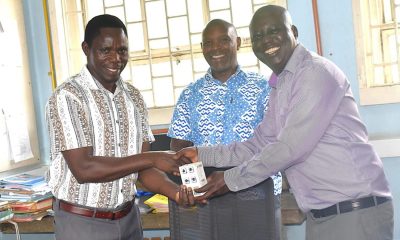

Dr Oruru Bosco Appointed Acting Head of the Department of Physics
-
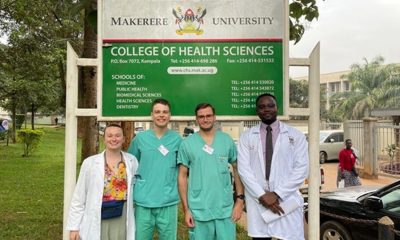

MakCHS Strengthens Internationalization through Strategic Global Partnerships and Mobility
-
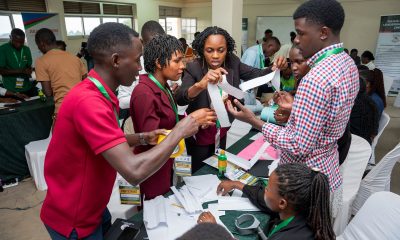

UNDP and JNLC hold training in Fort Portal: Participants equipped with skills in Advocacy and Gender Equality, Team Building, Inclusive Leadership, and Financial Literacy
General
Press Statement: Makerere 76th Graduation Ceremony
Published
6 days agoon
January 28, 2026By
Mak Editor
Makerere University’s 76th graduation ceremony will be held from February 24th – 27th, 2026, at the Makerere University Freedom Square, starting at 8.30am. During the 76th graduation ceremony, we shall confer degrees and award certificates to 185 PhDs, 2034 Masters, 6,043 bachelors, 137 postgraduate diplomas and 33 diplomas.
I am proud to announce that in comparison to the 75th graduation, we have registered a 30% growth in graduate student output. This is a result of our strategic decision to prioritize graduate education per our research-led agenda.
I also wish to announce that the transcripts have been finalized and are ready for pick up. Today, I am handing over the ready transcripts to the College principals and can be picked up from respective Colleges even before the graduation ceremony.
Important to Note:
In preparation for the graduation ceremony, the University wishes to note the following:
- Pre-graduation clearances
Graduands are reminded to clear all necessary payments such as tuition and all graduation
fees. It is also important to check with your College to ensure your name is on the graduation
list and all mandatory clearances with university officials have been finalized. Note and
internalize the graduation schedule (attached) to know which day you are graduating. - Securing the graduation gowns
Graduation gowns will be issued starting from 2nd February 2026 from the University Hall (Dinning Hall), Monday to Friday, from 9am to 4pm. To collect your gown, check and ensure your name appears on the Senate Graduation list, present your student number or National ID, and proof of payment for the gown. - Security requirements
- Attendance: For each day of graduation, entrance to the graduation ground will be by invitation only. Graduands will be issued with invitation cards which permits two guests per graduand. Do not come with more than two people or they will not be allowed access to the graduation venue. Graduands are encouraged to arrive to settle at the Freedom Square by 7am on graduation day to for a seamless flow of planned activities including the necessary security checks.
- Prohibited items: Prohibited items include firearms, sharp instruments like mirrors and knives, alcohol, cell or batteries and chemicals, canned food and drinks, laptops, flashes and hard disks, radios including pocket radios, bottled drinks, cameras, large bags or any other heavy items.
- Media: All media and journalists who wish to cover the ceremony must be pre-accredited by the Makerere University Public Relations office or they will not be allowed to access the ceremony venue. The access point for accredited media personnel will be the Senate Building.
- Parking: There will be two designated parking areas; Rugby Grounds for those coming through the Eastern and Main Gate; and the second one is the Makerere University Main Grounds at Makerere College School. For VVIPs, VIPs and procession parking will be at CTF1, Directorate of Legal parking, St Francis and St Augustine parking, JICA and Senate Building.
- Access Control: To ease traffic flow and management, the University has planned three access points to the graduation venue: the School of Social Sciences, Senate Building and the University Swimming Pool.
- For help and inquiries
- Starting February 2, 2026, the Academic Registrar ’s Office and Graduation Committee will set up an information tent outside the Senate Building to provide guidance and handle all inquiries pertaining to graduation.
General
Re-Advert for the Position of the Second Deputy Vice Chancellor
Published
1 week agoon
January 27, 2026By
Mak Editor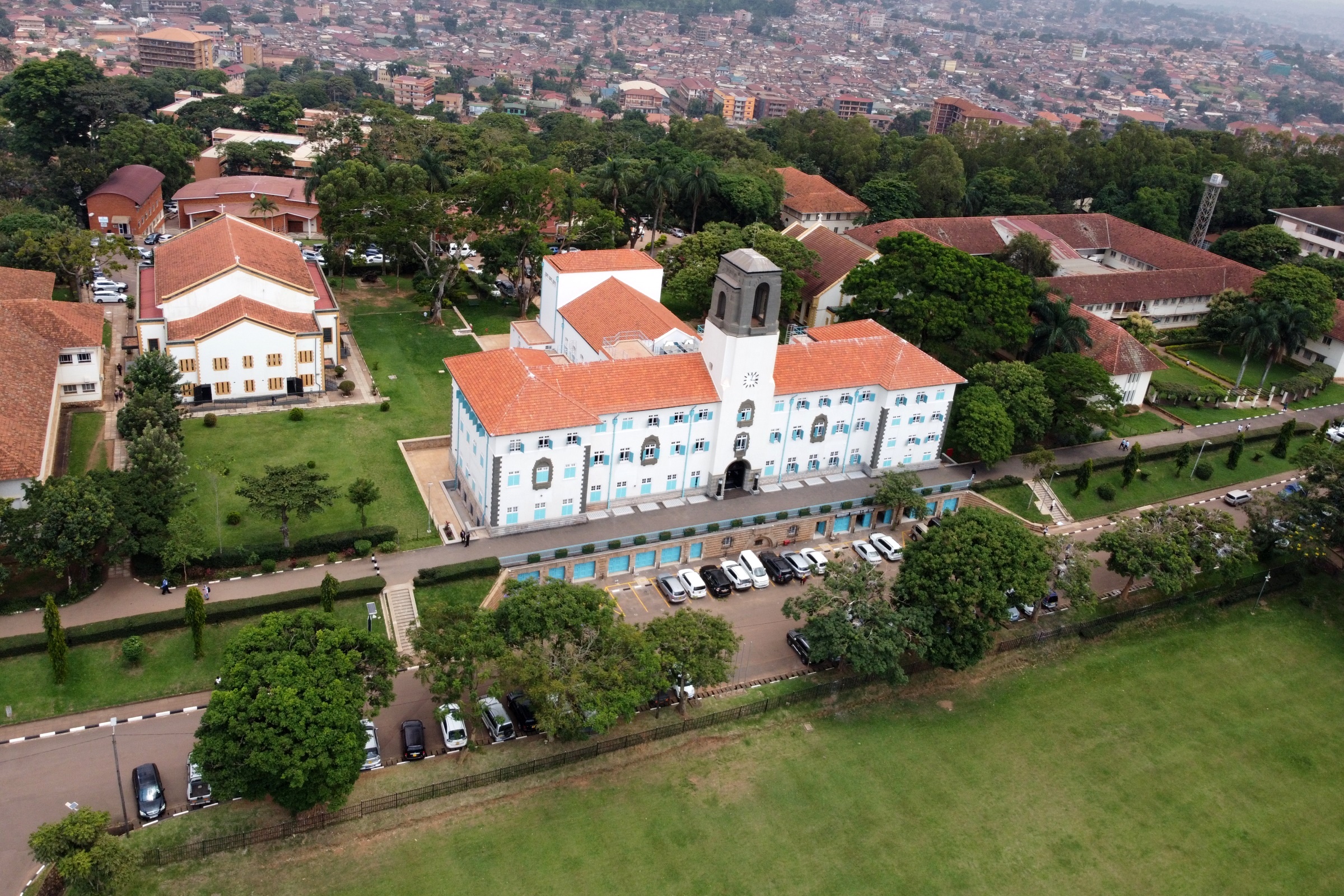
Makerere University is governed by the Universities and Other Tertiary Institutions Act, Cap 262. The University is seeking applications from suitably qualified applicants for the position of Second Deputy Vice-Chancellor. The Second Deputy Vice Chancellor holds a pivotal role in financial governance, institutional planning, and administrative leadership.
1. POSITION: SECOND DEPUTY VICE-CHANCELLOR
2. SALARY SCALE: PU2
3: DUTY STATION: MAKERERE UNIVERSITY
4. ROLE
The Second Deputy Vice-Chancellor will report to the Vice–Chancellor and shall:
- Assist the Vice Chancellor in performance of his or her functions and in that regard shall oversee the finances and administration of the University;
- Be responsible for the Planning and Development of the University and,
- Perform such other functions that may be delegated to him or her by the Vice Chancellor or assigned by the University Council.
5. PURPOSE OF THE JOB
To provide strategic leadership and ensure efficient and sound financial, human and fiscal resources management in the University.
6. DUTIES AND RESPONSIBILITIES
- Provide leadership in Strategic planning and governance, leadership and administrative experience, Human resource and performance Management, Stakeholder engagement and collaboration.
- Provide leadership in preparation and implementation of the University’s recurrent and capital budgets.
- Monitor the development and implementation of the University’s accounting procedures, manuals and other documents relating to financial control and Management as per approved financial regulations.
- Oversee income and expenditure of all income generating units of the University.
- Coordinate the production of the University-wide Financial Reports by Colleges and Units.
- Management of human resources in the University.
- Oversee the management of University Estates and Assets.
7. CANDIDATE SPECIFICATION
- Hold a PhD or any other academic doctorate.
- Be at the rank of associate or full professor level in an institution whose academic ranking is comparable with that of Makerere University as accepted by Senate.
- Be a Ugandan citizen within the age bracket of 40 to 65 years at the time of application.
7.1 Academic Qualifications
- Earned a Ph.D. or equivalent doctorate should be acceptable by Senate.
- At least five years of financial or administrative leadership experience at the level of school dean/director or higher in a higher education institution, public service, or corporate institutions.
- Supervised at least ten (10) postgraduate students (Master’s and Ph.D.) to completion. At least three of the students must be at the PhD level.
7.2 Strategic Planning and Governance
- Experience in leading large administrative teams at the level of dean or higher, demonstrating efficiency and productivity.
- Proven record in developing and executing strategic plans, aligning financial and administrative objectives with institutional goals.
- Evidence of developing and implementing financial policies that have improved financial efficiency, transparency, and risk management.
- Evidence of implementing organisational restructuring or process improvements to ensure operational efficiency.
- Ability to develop and implement institutional policies, ensuring compliance with national higher education and financial regulations.
7.3 Leadership & Administrative Experience
- Minimum 5 years of senior academic leadership in a recognized institution comparable with that of Makerere University, as accepted by Senate.
- Demonstrated experience in managing budgets exceeding UGX 500,000,000=, ensuring financial sustainability and accountability.
- Proven ability to mobilize resources, secure grants, and attract external funding to support institutional growth.
- Experience in conducting financial forecasting, cost control measures, and investment strategies to optimize institutional resources.
- Track record of leading financial audits and compliance assessments in alignment with national and international financial regulations.
- Experience in handling procurement, asset management, and infrastructure development, ensuring transparency and value for money.
7.4 Human Resource and Performance Management
- Track record of leading workforce planning, recruitment, and talent development strategies, ensuring a high-performance institutional culture.
- Experience in implementing performance-based appraisal systems, leading to improved staff efficiency and accountability.
- Proven ability to foster industrial harmony, resolving labour disputes and improving employer-employee relations.
7.5 Infrastructure Development and Resource Optimization
- Experience in overseeing capital development projects, ensuring timely delivery and cost efficiency.
- Track record of overseeing the maintenance and expansion of university facilities, enhancing institutional infrastructure.
- Proven ability to negotiate and manage contracts for outsourced services, ensuring cost-effectiveness and quality standards.
7.6 Digital Transformation and ICT Integration
- Experience in integrating ICT solutions in financial and administrative operations, improving service delivery and efficiency.
- Evidence steering the automation of financial, procurement, and HR systems, reducing paperwork and improving real-time decision making.
- Proven ability to implement cybersecurity measures that safeguard institutional financial and administrative data.
7.7 Stakeholder Engagement & Collaboration
- Demonstrated experience in building partnerships with government agencies, donors, private sector investors, and international organizations to enhance institutional funding.
- Proven ability to engage faculty, students, and staff in financial decision-making, ensuring transparency and inclusivity.
- Experience in negotiating contracts, partnerships, and collaborations that have led to financial and administrative growth.
7.8 Personal Attributes
- High level of integrity, transparency, and ethical leadership, with a record of financial prudence.
- Strong analytical, problem-solving, and decision-making skills, backed by evidence of successfully managing complex financial and administrative challenges.
- Excellent communication, negotiation, and interpersonal skills, ensuring effective stakeholder engagement.
- A visionary leader with the ability to drive financial sustainability. administrative efficiency, and institutional growth.
8. REMUNERATION
An attractive remuneration package that is in accordance with Makerere University terms and conditions of service.
9. TENURE
The Second Deputy Vice Chancellor shall hold office for a period of five years and shall be eligible for re-appointment for one more term.
10. METHOD OF APPLICATION
Interested applicants are invited to submit their application letters. The following documents shall comprise a complete application:
- A signed letter of application;
- A vision statement;
- Curriculum Vitae with contact details signed and dated by the applicant;
- Copies of required minimum number of publications;
- Certified copies of academic transcripts and certificates;
- Three (3) letters of recommendation;
- Copies of letters of appointment to leadership positions at the level of Dean of a School in a national accredited university or other academic institution;
- A copy of the applicant’s National Identity Card or passport;
- A copy of the last clearance from the Inspector General of Government or other equivalent national body;
- Referees should be advised to send confidential reference letters, addressed to the Chairperson Search Committee for the Position of Second Deputy Vice Chancellor and delivered directly to the address below by 5:00 pm on Friday 13th February, 2026;
- The references should cover the following areas: the applicant’s academic credential, experience, leadership, managerial and administrative skills and personal integrity.
Both Hardcopy and Electronic (Email) applications shall be accepted.
- Hardcopy applications: Both confidential letters and sealed applications marked “CONFIDENTIAL: POSITION OF SECOND DEPUTY VICE CHANCELLOR” should be addressed to:
SECRETARY SEARCH COMMITTEE
THE ACADEMIC REGISTRAR
MAKERERE UNIVERSITY
6TH Floor, ROOM 602, SENATE BUILDING
P.O.BOX 7062, KAMPALA, UGANDA
- Electronic media (e-mail) applications should have all the above documents scanned and emailed to search.dvcfa@mak.ac.ug by 5.00 pm East African Standard Time on Friday 13th February, 2026.
Please note that:
- Incomplete applications or applications received after the closing date and time will not be considered.
- Only shortlisted applicants shall be contacted.
- Applicants who responded to the advertisements published on 31st December 2025 (The New Vision) and 2nd January 2026 (The Daily Monitor) do not need to re-apply.
For more Information and inquiries:
Visit our website https://mak.ac.ug/search-for-dvcs OR email us on search.dvcfa@mak.ac.ug OR Call Telephone number: +256-414-532634 during working hours (between 8:00 am to 5:00 pm Monday to Friday).
MAKERERE UNIVERSITY IS AN EQUAL OPPORTUNITY EMPLOYER
Prof. Mukadasi Buyinza
ACADEMIC REGISTRAR
General
Press Statement: Makerere University Congratulates Former Staff and Students on Successful Election to Public Office
Published
1 week agoon
January 27, 2026By
Mak Editor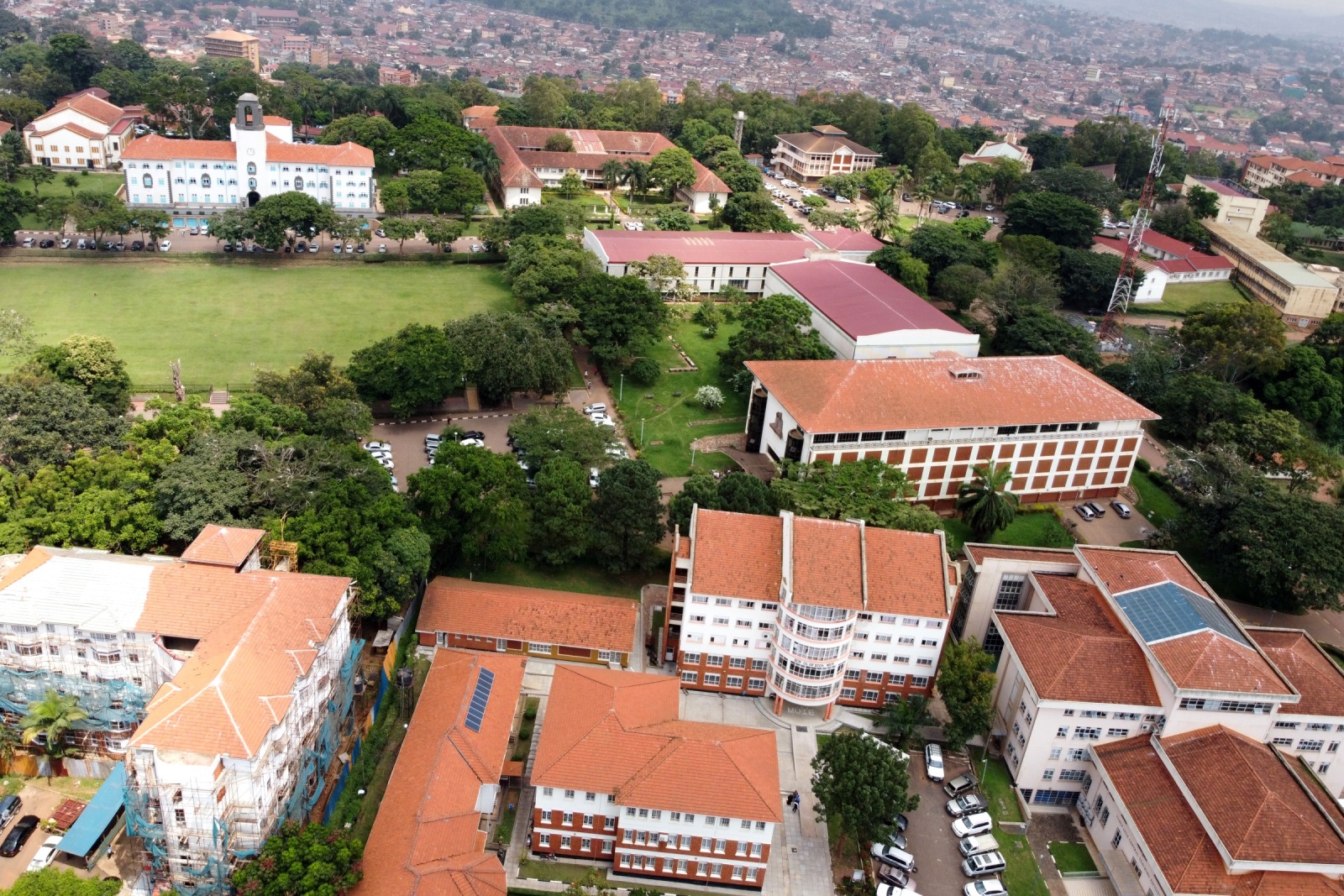
Makerere University warmly congratulates its former staff and students who emerged victorious in the 2026 national elections. Their success is a source of immense pride to the University and a strong affirmation of Makerere’s efforts to not only nurture academic excellence but also free expression and leadership. It is evidence of Makerere’s enduring impact and contribution to leadership, public service, and national development.
We are particularly pleased to recognize the following distinguished members of the Makerere University community who emerged victorious:
- Dr. Kiyonga Crispus Walter, Chancellor of Makerere University, on his election as MP for Bukonzo West.
- Rt. Hon. Tayebwa Thomas, former Chair, Finance, Planning, Administration, and Investment Committee of the University Council, on his re-election unopposed as MP for Ruhinda North and approval by the NRM Central Executive Committee (CEC) as Deputy Speaker 12th Parliament.
- Mr. Kabaasa Bruce Balaba, Chair, Finance, Planning, Administration, and Investment Committee of the University Council, on his election as MP for Rubanda County West.
- Hon. Nobert Mao, former Guild President, on his re-election as MP for Laroo-Pece.
- Mr. Alionzi Lawrence, former Guild President of Makerere University, on his election as Lord Mayor of Arua City.
- Mr. Maseruka Robert, former Guild President of Makerere University, on his election as MP for Mukono South.
- Mr. Gyaviira Lubowa Ssebina, former Deputy Bursar of Makerere University, on his election as MP for Nyendo–Mukungwe.
- Prof. Lubega George Willy, former Staff at College of Veterinary Medicine, Animal Resources and Biosecurity (COVAB), on his election as MP for Bugangaizi South.
- Prof. Ahebwa Wilber Manyisa, former Staff at College of Agricultural and Environmental Sciences (CAES), on his election as MP for Nakaseke North.
- Dr. Asiimwe Florence Akiiki, former Staff at College of Humanities and Social Sciences (CHUSS), on her election as Woman MP for Masindi District.
- Dr. Kasigwa Gerald, former Staff at College of Business and Management Sciences (CoBAMS), on his election as MP for Kigorobya County.
- Hon. Adeke Anna Ebaju, former Guild President, on her re-election as Woman MP for Soroti District.
- Hon. Onekalit Denis Amere, former Guild President, on his re-election as MP for Kitgum Municipality.
- Hon. Karuhanga Gerald, former Guild President, on his re-election as MP for Ntungamo Municipality.
- Hon. Aber Lillian, former Vice Guild President, on her re-election as Woman MP for Kitgum District.
- Hon. Nyamutoro Phiona, former Vice Guild President, on her election as Woman MPfor Nebbi District.
- Dr. Lakisa Mercy Faith, former Vice Guild President, on her election as Woman MP for Alebtong District.
- Ms. Lenia Charity Kevin, former Vice Guild President MUBS, on her election as MP for Vurra County.
- Dr. Nambassa Shamim, former Guild President, on her election as LC V Woman Councilor for Kawempe South.
- Dr. Nalukwago Judith, former Vice Guild President, on her election as LC V Woman Councilor for Makindye West.
- Ms. Nattabi Margaret, former Vice Guild President, on her election as Female Youth Councilor for Mukono Municipality.
- Mr. Kizito Abasi, former Guild Minister, on his election as LC V Chairman for Lwengo District.
- Ms. Ssonko H. Namuganga, former Guild Minister, on her election as Female Youth Councilor for Kalungu District.
Makerere values dialogue, democracy, and responsible citizenship, and continues to make deliberate and progressive efforts to enhance participation in leadership and governance. We are confident they will serve with dedication, wisdom, and integrity.
We Build for the Future.
Trending
-

 General1 week ago
General1 week agoPress Statement: Makerere University Congratulates Former Staff and Students on Successful Election to Public Office
-

 General6 days ago
General6 days agoPress Statement: Makerere 76th Graduation Ceremony
-

 General1 week ago
General1 week agoRe-Advert for the Position of the Second Deputy Vice Chancellor
-

 General2 weeks ago
General2 weeks agoMak Hosts NCHE Competence-Based Education Standards Validation Meeting
-
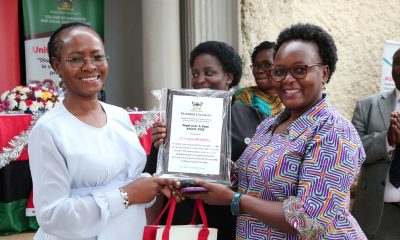
 Humanities & Social Sciences2 weeks ago
Humanities & Social Sciences2 weeks agoDr. Pamela Khanakwa Honored for Steering Record 18 PhD Candidates for the Mak 2026 Graduation
